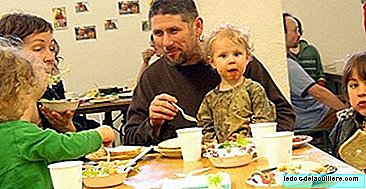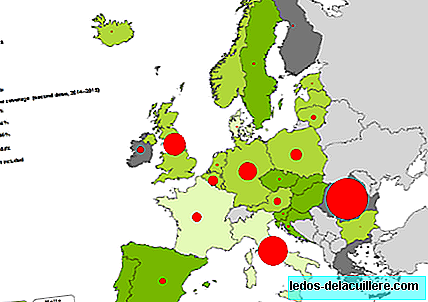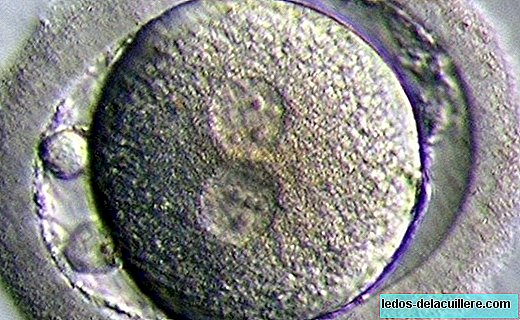
There are different formulas to know how much you will measure when you grow up, but each child's growth is different and is conditioned by factors of a diverse nature. However, let's see if we can approach an answer to the question at hand: How much will my son grow up?
It is difficult to predict, and it is not enough for us to apply a mathematical rule taking into account parental sizes. This is because growth is a process in which the genetic component is essential, but there are other endogenous factors (genetic or hereditary, metabolic and neurohormonal) and exogenous (food and environmental factors) that influence for or against the developing.
In humans, growth begins with fertilization in the womb and ends at the end of adolescence, when growth cartilages are welded.
Growth is a complex biological phenomenon. through which living beings, while increasing their mass, mature morphologically and progressively acquire their functional capacity. The increase in size in an organism is a consequence of cell proliferation that leads to the development of more specialized structures.
We have already seen the factors involved in fetal growth, which are still important in subsequent growth. Let's look at all the components that influence the growth of children, because it is they who will determine their final size.

Factors involved in growth
Determining factors: they are the genetic ones. It is the growth potential transmitted through genes inherited from parents through a polygenic mechanism and found in all chromosomes. Genetic information determines the final size, and also the time and the way it reaches it.
Factors that allow genetic information to be adequately expressed and genetically determined size is reached. Among them, the contribution of oxygen and nutrients and the normality of all the structures involved in the process of digestion-absorption and metabolism stand out. By feeding we provide the body with the necessary food for proper nutrition that favors a series of physiological processes that use and transform the chemical substances contained in food.
In addition to nutrition, socioeconomic status (care, health care, prevention, hygiene, pollution ...), climatic, cultural factors and emotional status also affect growth. Affective factors they are more discussed, but it seems that adequate emotional support facilitates growth, while the lack of emotional stimuli slows growth; for example, in the so-called "affective dwarfism" the child grows up in the hospital and not at home. These factors, however, would primarily affect the psychological development of the child.
Regulatory factors: are responsible for converting the instructions encoded in the genes in the adult individual, according to the possibilities of the environment and the set of previous factors. The coordination of the factors that affect growth and development must be exercised by the endocrine glands or internal secretion glands that are responsible for secreting chemical compounds called hormones. The most directly implicated hormones they are pituitary growth hormone, thyroid hormones (control the rhythm of metabolism and body development), cortisol, adrenal androgens, testosterone, estrogens, active metabolites of vitamin D and insulin.
Factors physiologically involved in allowing the other growth factors to take place: they are fundamentally the bone skeleton and the growth cartilage.
During the first two years it is when children grow older, and if all the aforementioned factors work "at full capacity", and there are no alterations in the body or any of the components involved (hormones, bones ...) is damaged, the development It will be optimal.
Then the growth follows similar patterns in the different stages until puberty, which divide early childhood (the first two years), stable growth (until the "pubertal stretch"), puberty and adolescence.
We still don't have a concrete answer to how much our child will grow, but as long as it cannot be programmed into genes by default (as in some science fiction stories), we settle for predictions. We will have to wait for it to grow.
Photos | Victor1558 and valentinapowers on Flickr-CC On Babies and more | How and how much does a child grow during his childhood (I) and (II), Intrauterine growth retardation, how long will he grow up?












